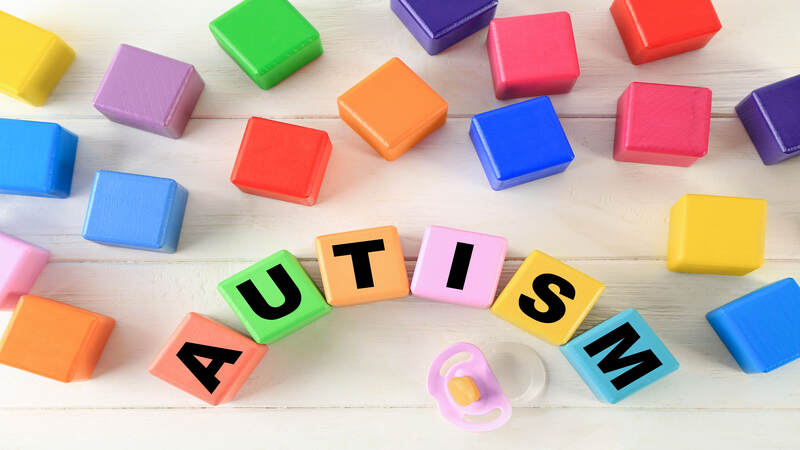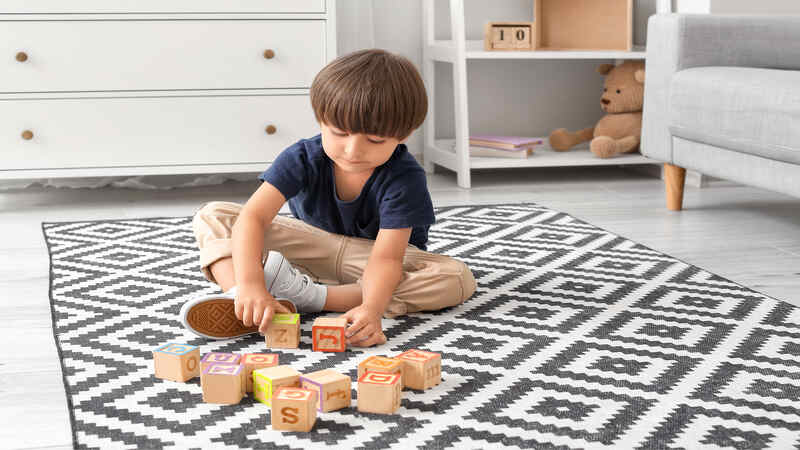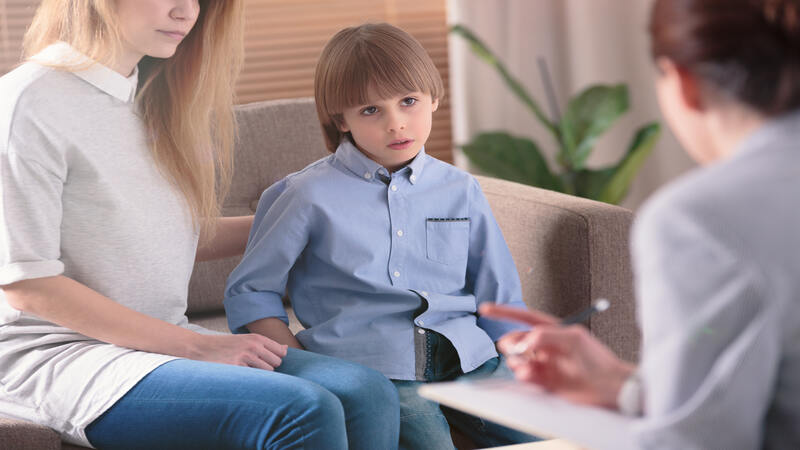
Raising a child is a journey filled with obstacles and delights. If you’re a parent whose child pictures the world differently than others, the challenge becomes even more unique and lonely. Parenting an autistic child demands patience. You need an effective toolbox of strategies to manage their sudden meltdowns which can be intense and overwhelming for both the child and the parent.
Whether you’re seeking ways to improve communication or nurture your child’s strengths, these tips for parenting an autistic child will be useful and rewarding. Let’s dive into the practical insights that can support the child in moments of trial and struggle.
What is Autism?

Autism, technically known as ASD (Autism Spectrum Disorder) is a broad terminology. It is a neurodevelopmental condition characterized by varying degrees of difficulty in behavior, communication, and social interaction. These children are wired to perceive their surroundings differently than others. As a result, they struggle to understand social cues, maintain eye contact, and deliver interpersonal communication in their daily life (1).
Many children show autism symptoms as early as 12 to 18 months, and even earlier (2). However, behavioral and communication problems become more noticeable in toddlerhood or early childhood years. As per the reports of the World Health Organization (WHO), the autism prevalence rate is quite high. About 1 in 100 children globally have autism (3).
Causes
Although autism is on the rise, the real cause remains obscure. Both genetic and environmental influences can cause autism. The incidence rate of ASD among family members of a child with autism is 2–8% higher than that of the general population (4). Studies have revealed that increased maternal and paternal age poses a threat to autism (5). Sometimes pregnancy-related complications such as maternal hypertension, previous fetal loss, and preeclampsia can also cause autism symptoms in children (6).
How to Know if Your Toddler Has Autism?

Since autism symptoms start showing up very early in life, mostly in the first year of a child’s life. For toddlers, symptoms that surface early are as follows:
- Limited eye contact
- By age 2, not using single words or two-word phrases
- Sensitive to loud sounds or bright lights, seemed usual for others (7)
- No response to the name (8)
- Repetition of actions
- Prefers playing alone
- Being rigid to daily routines
Signs And Symptoms of Autism in Kids

The signs and symptoms of this disorder are enumerated below:
- Avoiding looking at other’s eyes (9)
- Doesn’t respond when called by their name
- Repeat words and phrases without a purpose
- Shows signs of delayed speech (10)
- Sensory overload happens, throws tantrums at sounds and bright lights
- Hand flapping and rocking movements of the body are common
- Resists physical touch from others
- Poor social skills as seen in solo play (11)
- Sudden meltdowns
- Short attention span (12)
- Unusual interests like fixation on specific objects
- Cannot pretend play (13)
Parent’s Guide to Autism Treatment And Support For Kids

As parents, knowing the child has autism is itself an overwhelming experience. If your child is showing autistic-like symptoms, you must be wondering what lies ahead of you. Maybe, being a parent you are not prepared to face the challenges right away. However, catching autism early is always beneficial.
Numerous treatments can help the child gain new skills and overcome various developmental challenges, promoting their learning and overall well-being. This can make parenting an autistic child somewhat easy as well.
Don’t Wait For a Diagnosis
Whenever you suspect your child’s behavior is not at par with others, or your hunch says that something is not in the right place, seek advice from doctors or mental health experts on the same. Never wait for a formal diagnosis so that you won’t lose out on valuable time to help your child. Early intervention helps your child achieve developmental milestones easily. It speeds up development and also lowers the risk of having life-long issues later on. Early intervention can also make parenting an autistic child less challenging.
What to do if Your Toddler Has Autism?

Now, you must be wondering what best you can do for your child’s wellbeing. The best ways on parenting an autistic child are-
1. Educate Yourself on Autism
It’s your turn now to learn more about autism. The more aware you become about the signs and symptoms of the illness, the better it will be for your child. Always make informed choices for your child regarding treatment facilities and school-based programs.
2. Become an Expert on Your Kid
Being a parent, you are the best judge of your child’s behavior. You need to figure out the triggers that disturb the child and also what makes them feel happy and poised. When you know what affects your child’s behavior, you can make necessary changes to either alter the behavior or just nip it in the bud.
3. Accept Your Kid Wholeheartedly
Let’s not concentrate on how your autistic child differs from others or what they might be lacking, embrace acceptance. You should cherish their unique traits and celebrate their tiny achievements. Never make comparisons with other children; instead, provide unconditional love and acceptance always.
4. Never Give Up
Being a parent, it is normal to feel overwhelmed at times. But never give up on trying to make your child’s life better. Since it is not easy to predict the course of the autism symptoms, you need to practice patience. Never jump to conclusions and remember that everyone has a timeline to grow and develop. Just respect the same for your child.
Tips For Parenting a Kid With Autism
An autism diagnosis brings in extra challenges for parents and caregivers. Some of the best tips are given below:
1. Stay Consistent on Schedule

Autistic children thrive with consistent, simple schedules. Ensure routines at preschool and home are the same. For example, if they use sign language for the bathroom at school, use the same method at home to avoid confusion and aid in following instructions.
2. Reward Their Good Behavior/Use Positive Reinforcement
Positive reinforcement is highly effective for children with ASD. Research has shown that behavior training through positive feedback helps them learn social and communication skills easily (14). Make a point to “catch them doing something good” always.
3. Create a Safe Zone in Your Home

Always try to create a dedicated space in your house for the child. This could be a small corner of the room with their favorite toys and coloring set. This enables them to play in a safe space. You can use visual cues such as colored tape to set limits or stick pictures to help them understand their limits.
4. Look For Nonverbal Cues
Focus on nonverbal cues to communicate effectively with an autistic child. Watch their body language, facial expressions, and gestures to understand their needs and emotions. Respond with empathy and use visual aids and clear, simple actions to connect with your child.
5. Figure Out The Reason Behind Their Tantrums

As parents, You should be able to observe their actions closely and understand the reason for anger or annoyance. Their outbursts often result from your failure to recognize their nonverbal signals, making tantrums their way of expressing frustration and seeking attention.
6. Include Fun Activities
Having quality time spent at home with caregivers helps them cope with their challenges. Schedule playtime when they’re alert and focusing on activities. Sometimes, unpressured play strengthens bonds and aids learning, making it an essential, enjoyable part of their day.
7. Pay Attention to Your Toddler’s Sensory Sensitivities

Most children with autism are hypersensitive to loud sounds or bright lights. In such a case, you need to identify those sounds, lights, or smells that trigger their tantrums and meltdowns. Later on, prevent such situations by being alert. You can altogether try to remove these stimuli at home.
8. Allow Room For Your Feelings And Emotions
As parents, it is normal to feel sad or disappointed with an ASD diagnosis of the child. You should allow your feelings to run their course normally. It leads to better acceptance of the situation. Your mourning may give you additional strength to combat all ills.
9. Build a Support System

Try to connect with friends and family members if you’re feeling overwhelmed with your child’s diagnosis. At times, learning about autism can feel isolating and confusing. Talking to others parenting an autistic child can be very comforting and reassuring, showing you that you’re not alone in this journey (15).
10. Believe in Your Kid’s Abilities And Encourage Them
Have faith in your child’s abilities and remember that a single diagnosis doesn’t define your little human completely. Your child is unique and special. Therefore, celebrate each moment with them and help them thrive in this world with their infinite talents.
11. Praise Yourself!
Never forget to praise yourself for your patience and understanding. Always remember that you are walking an extra mile than others to support your child who is super talented, yet different from many. Parenting an autistic child is not an easy task, and you are doing your best. Recognizing your dedication boosts your self-esteem and resilience.
12. Make Time For Yourself

Always take time out of your daily schedule to look after your physical and mental health. It’s an undeniable fact that parents of autistic children suffer anxiety and depression more than others. Thus, self-care is important for dispelling stress and restoring well-being.
Caring for a child with autism demands patience, understanding, and unconditional love. Being a parent, you need to welcome all their deficits and love them unconditionally. The tips for parenting an autistic child, coupled with your compassion and encouragement are key to helping them thrive and feel secure in this indifferent and not-so-friendly world.
FAQ’s
1. What Parenting Style is Best For Autism?
An understanding and compassionate parenting style is best for autism. It should be flexible and encouraging as well. Taking care of the child’s individual needs patiently is the key to parenting these sensitive children.
2. What is The Hardest Part of Raising a Child With Autism?
The hardest part of raising a child with autism often involves managing daily challenges and uncertainties, while balancing emotional and practical needs. These children need constant support to learn new skills that can be exhausting for caregivers.
3. Do Autistic Kids Love Their Mom?
Yes, autistic children can shower love and affection to their mothers. Their expression of love may not be typical like others, yet they can feel deeply about their mothers. Their emotional bonding may miss out on words yet gestures are full of affection.
4. What do Most Autistic Kids Like?
Most autistic kids enjoy activities that align with their individual interests. They may prefer to draw and paint, or involve in activities that offer focused engagement such as puzzles or stacking blocks.
5. Can Autistic Kids Say Love You?
Yes, some autistic children who can talk and express feelings verbally may use words like ‘I love you’ just to show their love and bonding for the other person.
6. What Are Autistic Kids Scared of?
Autistic kids are scared of unfamiliar people and surroundings. They are also affected by loud noises, or unfamiliar lights that are unknown to them. They fear unpredictable settings and throw tantrums or meltdowns instantly.
7. What Irritates an Autistic Child?
An autistic child may feel irritated if their needs are not met, or they feel unsafe in their surroundings. Any sort of interruption to their daily routine can irritate them.
8. Are Autistic Kids Smart?
Yes, autistic kids are super smart and talented. Many of them excel in numerical ability, music, fine arts ets. As they think differently, their ideas can be innovative as well.
9. Will Autistic Kids Give Kisses?
Yes, autistic kids can give kisses. They may show affection in various ways, including physical touch and kiss, based on their choice and comfort.
10. Which Food is Not Good For Autism?
Foods that are high in sugar such as processed chocolates or junk food are not good for autism. These foods can aggravate sensory problems and behavioral challenges. Thus, balanced, home cooked meals are ideal.
11. Should You Hug an Autistic Child?
Hugging an autistic child is possible only if the child is comfortable with the physical touch of others. Always understand their preferences before approaching to avoid tantrums and meltdowns.
12. How do Kids With Autism Show Love?
Kids with autism show love through spending time together with parents. They enjoy sharing nonverbal cues such as affectionate gestures from caregivers and often reciprocate the same.
References
- Hodges H, Fealko C, Soares N. Autism spectrum disorder: definition, epidemiology, causes, and clinical evaluation. Transl Pediatr. 2020 Feb;9(Suppl 1):S55-S65. doi: 10.21037/tp.2019.09.09. PMID: 32206584; PMCID: PMC7082249. – https://www.ncbi.nlm.nih.gov/pmc/articles/PMC7082249/
- Tanner A, Dounavi K. The Emergence of Autism Symptoms Prior to 18 Months of Age: A Systematic Literature Review. J Autism Dev Disord. 2021 Mar;51(3):973-993. doi: 10.1007/s10803-020-04618-w. PMID: 32734422; PMCID: PMC7954747. – https://www.ncbi.nlm.nih.gov/pmc/articles/PMC7954747/
- World Health Organization (WHO) – https://www.who.int/news-room/fact-sheets/detail/autism-spectrum-disorders
- Almandil NB, Alkuroud DN, AbdulAzeez S, AlSulaiman A, Elaissari A, Borgio JF. Environmental and Genetic Factors in Autism Spectrum Disorders: Special Emphasis on Data from Arabian Studies. Int J Environ Res Public Health. 2019 Feb 23;16(4):658. doi: 10.3390/ijerph16040658. PMID: 30813406; PMCID: PMC6406800. – https://www.ncbi.nlm.nih.gov/pmc/articles/PMC6406800/
- Lyall K, Song L, Botteron K, Croen LA, Dager SR, Fallin MD, Hazlett HC, Kauffman E, Landa R, Ladd-Acosta C, Messinger DS, Ozonoff S, Pandey J, Piven J, Schmidt RJ, Schultz RT, Stone WL, Newschaffer CJ, Volk HE. The Association Between Parental Age and Autism-Related Outcomes in Children at High Familial Risk for Autism. Autism Res. 2020 Jun;13(6):998-1010. doi: 10.1002/aur.2303. Epub 2020 Apr 21. PMID: 32314879; PMCID: PMC7396152. – https://www.ncbi.nlm.nih.gov/pmc/articles/PMC7396152/
- Gardener H, Spiegelman D, Buka SL. Prenatal risk factors for autism: comprehensive meta-analysis. Br J Psychiatry. 2009 Jul;195(1):7-14. doi: 10.1192/bjp.bp.108.051672. PMID: 19567888; PMCID: PMC3712619. – https://www.ncbi.nlm.nih.gov/pmc/articles/PMC3712619/
- Marco EJ, Hinkley LB, Hill SS, Nagarajan SS. Sensory processing in autism: a review of neurophysiologic findings. Pediatr Res. 2011 May;69(5 Pt 2):48R-54R. doi: 10.1203/PDR.0b013e3182130c54. PMID: 21289533; PMCID: PMC3086654. – https://www.ncbi.nlm.nih.gov/pmc/articles/PMC3086654/
- Miller M, Iosif AM, Hill M, Young GS, Schwichtenberg AJ, Ozonoff S. Response to Name in Infants Developing Autism Spectrum Disorder: A Prospective Study. J Pediatr. 2017 Apr;183:141-146.e1. doi: 10.1016/j.jpeds.2016.12.071. Epub 2017 Feb 2. PMID: 28162768; PMCID: PMC5370582. – https://www.ncbi.nlm.nih.gov/pmc/articles/PMC5370582/
- Madipakkam AR, Rothkirch M, Dziobek I, Sterzer P. Unconscious avoidance of eye contact in autism spectrum disorder. Sci Rep. 2017 Oct 17;7(1):13378. doi: 10.1038/s41598-017-13945-5. PMID: 29042641; PMCID: PMC5645367. – https://www.ncbi.nlm.nih.gov/pmc/articles/PMC5645367/
- Mody M, Belliveau JW. Speech and Language Impairments in Autism: Insights from Behavior and Neuroimaging. N Am J Med Sci (Boston). 2013;5(3):157-161. doi: 10.7156/v5i3p157. PMID: 24349628; PMCID: PMC3862077. – https://www.ncbi.nlm.nih.gov/pmc/articles/PMC3862077/
- Frye RE. Social Skills Deficits in Autism Spectrum Disorder: Potential Biological Origins and Progress in Developing Therapeutic Agents. CNS Drugs. 2018 Aug;32(8):713-734. doi: 10.1007/s40263-018-0556-y. PMID: 30105528; PMCID: PMC6105175. – https://www.ncbi.nlm.nih.gov/pmc/articles/PMC6105175/
- Ridderinkhof A, de Bruin EI, van den Driesschen S, Bögels SM. Attention in Children With Autism Spectrum Disorder and the Effects of a Mindfulness-Based Program. J Atten Disord. 2020 Mar;24(5):681-692. doi: 10.1177/1087054718797428. Epub 2018 Sep 15. PMID: 30222027; PMCID: PMC7003152. – https://www.ncbi.nlm.nih.gov/pmc/articles/PMC7003152/
- Marwick H, Jarvie K, Cowie H, Johnston L, Hammond-Evans N, Cockayne R. Developing Pretend Play in Autistic Children Using the Playboxes Joint Play Approach as Part of Ongoing Practice. J Autism Dev Disord. 2022 Jul;52(7):3050-3060. doi: 10.1007/s10803-021-05156-9. Epub 2021 Jul 9. PMID: 34244915; PMCID: PMC9213294. – https://www.ncbi.nlm.nih.gov/pmc/articles/PMC9213294/
- Schuetze M, Rohr CS, Dewey D, McCrimmon A, Bray S. Reinforcement Learning in Autism Spectrum Disorder. Front Psychol. 2017 Nov 21;8:2035. doi: 10.3389/fpsyg.2017.02035. PMID: 29209259; PMCID: PMC5702301. – https://www.ncbi.nlm.nih.gov/pmc/articles/PMC5702301/
- Huilun Li, Ya Su, Chengcheng Wang, Qingqing Ran, Liangzhi Tu, Erliang Zhang, Jinjun Ran, Hui Wang, Na Zhang, Yinghui Wu, Mi Xiang, Social support and depression of autistic children’s caregivers: The mediating role of caregivers’ self-esteem, Research in Autism Spectrum Disorders, Volume 108, 2023, 102241, ISSN 1750-9467, https://doi.org/10.1016/j.rasd.2023.102241. – https://www.sciencedirect.com/science/article/pii/S1750946723001411
